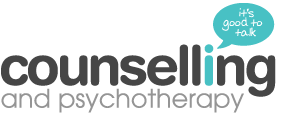Why Therapy?
Whoever we are and no matter what stage of life we find our self at, there will sometimes be problems, difficulties and challenges. Either due to certain situations, how we are thinking and feeling or quite often due to how our situation and state of mind are influencing each other.
At times, our situation, thoughts and emotions can feel intense or overwhelming due to our past or recent experiences and how we relate to them. Maybe our emotional world feels numb or blocked, perhaps there is confusion, a lack of meaning and direction in our life or concerns about the past or future. During such times it can be difficult to see a clear way through our experience.
If we have support from friends and family, it isn't always easy to share the full extent of our concerns with them. Indeed, our relationships (or lack of relationship) with our family, our partner, friends, colleagues and even with our-self, can be where we are experiencing the problems and difficulties.
Reaching out for help and support isn’t always easy, especially if we are not used to doing so and can be a difficult step in and of itself. However many people like you have taken that step and later thank themselves for having done so. If you are reading this, then I encourage you to take that step and get in touch, either via email or phone by using the contact details on this page and share a little about what it is you are finding difficult and what support you feel you need. I will reply and get back to you, usually within 24 hours on a weekday, via email or we can arrange an informal chat if you prefer, to see what the next step might be.
How can I help you?
I believe that ultimately you are the expert on you, however I provide an open, kind, aware space that is accepting, empathic, safe and confidential to help you explore your life situation and yourself. Helping you bring more awareness, clarity and kindness to your experience, we can then explore what choices and options there are regarding how you relate to your inner and outer worlds, and then see what strategies you can use to help implement those choices in a way that is beneficial to you in your life.
My past experience, integrative training and continuing professional development, provide me with the flexibility to draw on a number of theories and approaches including, Person Centred, Relational, Existential, Psychodynamic, Cognitive, Cognitive Behavioural Therapy (CBT) as well as Mindfulness and Compassion based approaches, to match what best serves you.
So, whether you are looking to make defined and definite changes in your life or are less clear about your current experience and would like a more open exploration, the style, structure and pace of the sessions follows your needs.
What happens in the first session?
Our first session will give us an opportunity to get to know each other a little, find out more about your needs, what has brought you to therapy and what it is you would like us to initially look at together.
If you have had therapy before, then I would be interested to hear about your past experience, what went well or not so well, for example.
We would also talk over our working agreement, looking at things like confidentiality, ideas and expectations of therapy and practical considerations like how often we plan to meet and when, for example.
There is no need for you to share everything all at once, anything you are uncomfortable about sharing or discuss anything you don't want to. As a therapist grounded in a person centred approach, I take your lead in terms of what you want to look at and where you want to go. You are invited to share your experience and give feedback about the process whenever you choose to and during times when we review how we feel the work we are doing together is going.
Counselling or Psychotherapy?
Counselling is usually shorter, more goal orientated work, aimed at resolving a few specific issues.
Psychotherapy is usually longer and deeper work, aimed at resolving more complex and often interrelated issues, leading to greater self-awareness and the exploration of the human condition and all that it entails.
The boundaries between Counselling and Psychotherapy can overlap and both approaches are ways to achieve a more fulfilled, happier and meaningful life and move in the direction of greater well-being.
Where do the Counselling sessions take place?
In-person I work out of the Quaker Meeting House in Rochester. The Meeting House has a peaceful atmosphere and is easily accessible by car (with parking close by), bus or train and has wheelchair access.
If you are unable to physically attend in-person or it isn't convenient to do so, I also offer remote sessions online via secure video call and over the phone, although I prefer that we can see each other in-person or via video where possible.
Get in Touch
You can contact me by email or phone by using the contact details on this page and share a little about what it is you are finding difficult and what support you feel you need. I will reply and get back to you, usually within 24 hours on a weekday, via email or we can arrange an informal chat if you prefer, to see what the next step might be.






